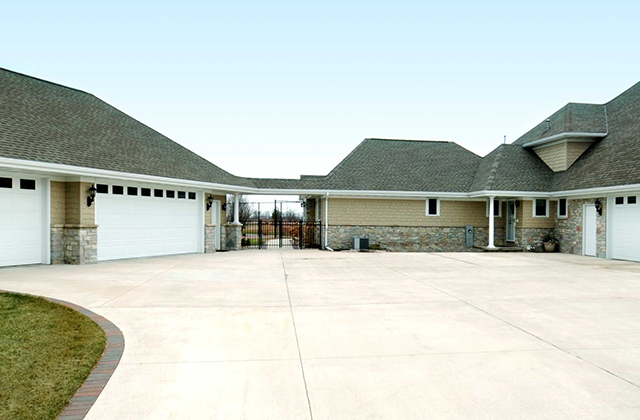When it’s time to construct a new driveway, you have to choose your materials, and the most common are asphalt and concrete. Both materials have their benefits and drawbacks, and your choice will largely depend on your budget, aesthetics, and where you live. The cost of concrete driveway is somehow expensive due to a fact that it needs to be layed out again.
Cost of Installation
Concrete driveways generally cost around 45 percent more to install in comparison to asphalt driveways. As a result, asphalt has a higher number of buyers in most areas. However, it is important to consider the toughness and longevity of both materials, as poor resistance to the elements and the need for frequent repairs can make any driveway more costly in the long run.

Climate Compatibility
Asphalt driveways are better suited to colder climates because constant exposure to high temperatures tends to make asphalt soft. In such circumstances, cracks and grooves may appear on the driveway, necessitating repair; however, it is easier to fix cracks in asphalt than in concrete.
Concrete driveways are more resistant to high temperatures, but in very cold climates, care must be taken to ensure that the base of the driveway is filled with compact gravel. If the foundation is not laid properly, concrete driveways are adversely affected by frost heave. Salt used on roads to combat ice and snow will also damage your concrete if you aren’t careful.
Sealing Requirement
Asphalt driveways must be sealed every four to five years. Asphalt is petroleum based and is very elastic at the time of installation. Over time, the oils are oxidized and lose their moisture. The color of the asphalt lightens to gray, and the structure becomes more brittle. This usually takes a few months to happen, which is why the first sealing application must be done around eight months after installation. If the asphalt is sealed immediately after installing, it will still be soft and will remain that way. This will make it less resistant to breaks and ruts.
Longevity
If maintained properly and sealed regularly, asphalt driveways will last around 30 years. When not properly cared for, an asphalt driveway can deteriorate considerably in as little as five years, leading to costly repairs or replacements. Concrete driveways can last 50 years or longer with lesser maintenance and repair costs. A sealer applied every few years is very beneficial on concrete driveways as well.
Appearance
Concrete driveways are available in a wider variety of choices than asphalt. Stained and stamped concrete driveways offer a distinct appeal, and cost less in the long run. You also don’t risk carrying in oil stains into the house, which may happen when you walk on the stained surface of an asphalt driveway. However, concrete driveways tend to be lighter, making any stains on them more visible than they would be on a dark asphalt surface.
The main advantage of asphalt driveways is the low installation cost. If you consider durability and maintenance costs, concrete driveways can definitely be the more economical choice.
